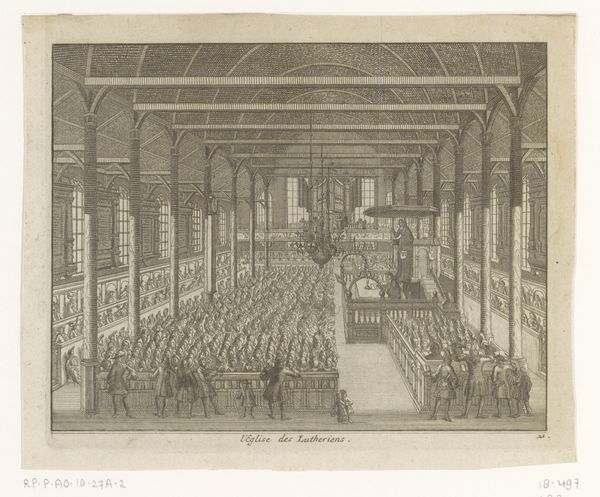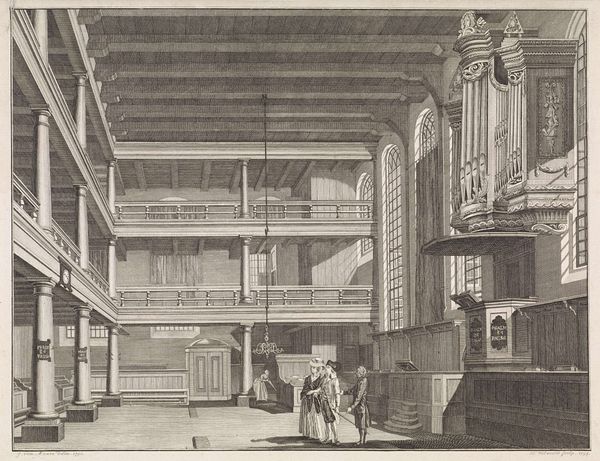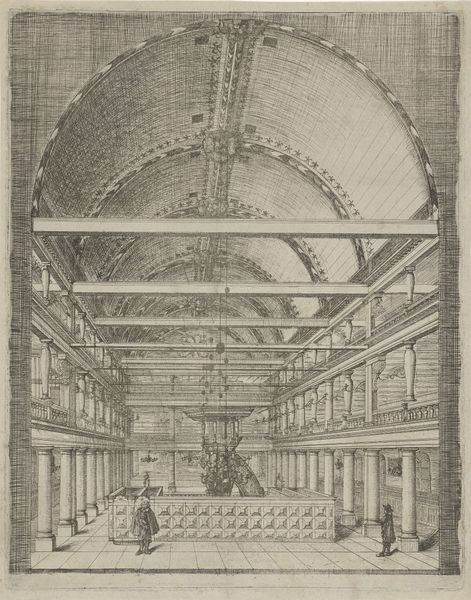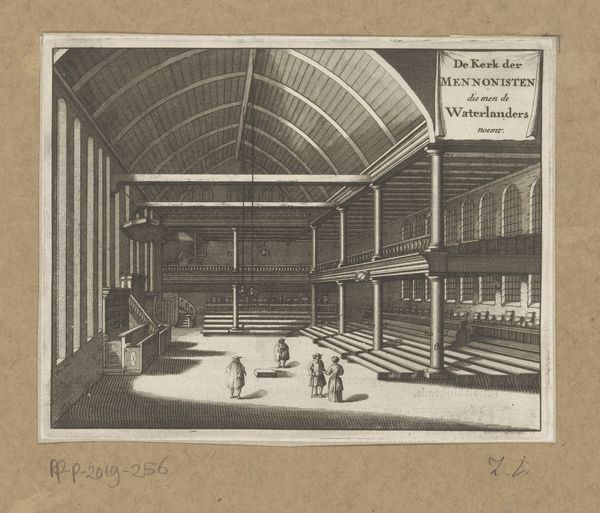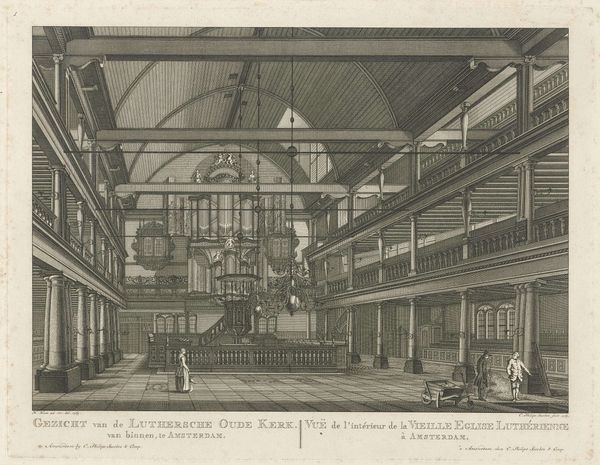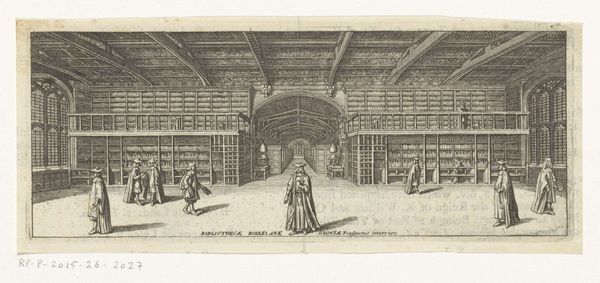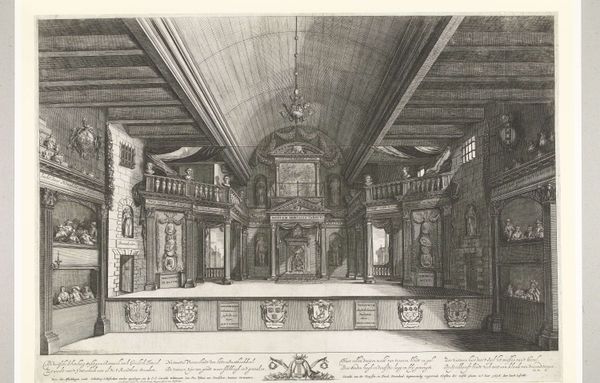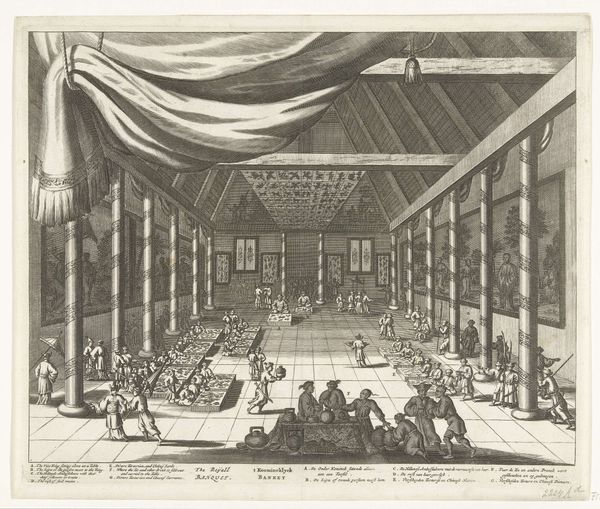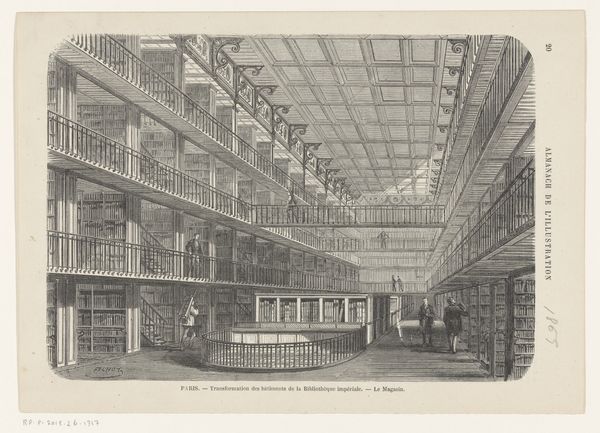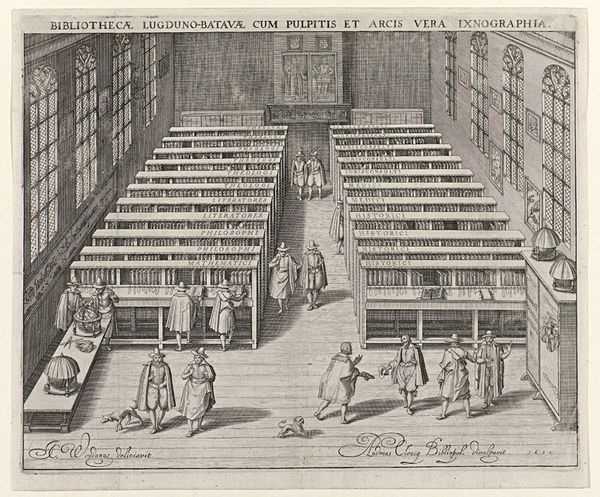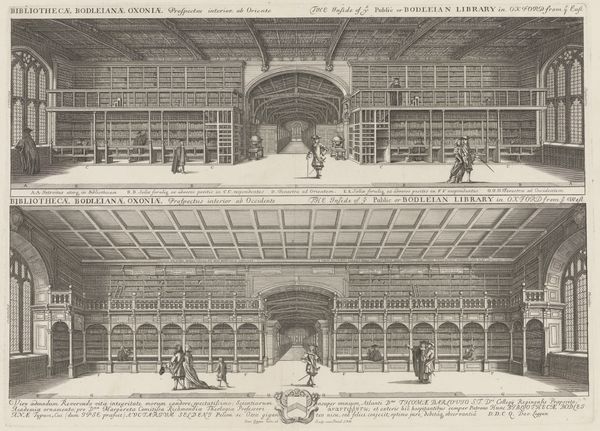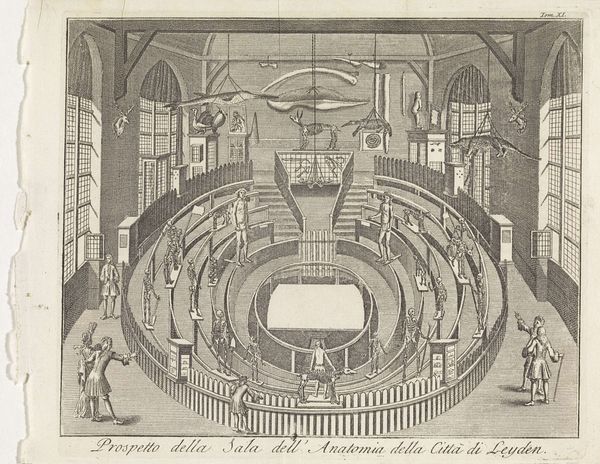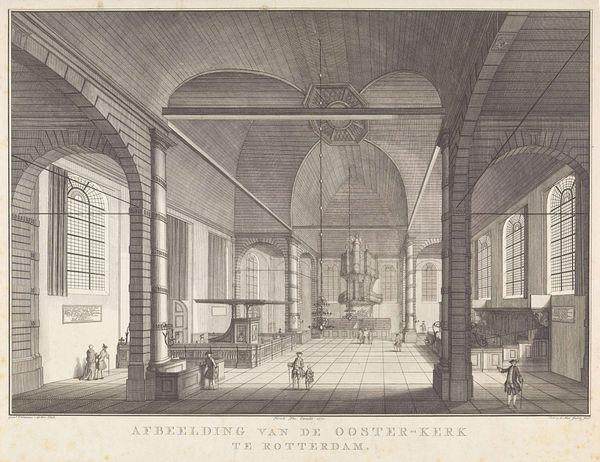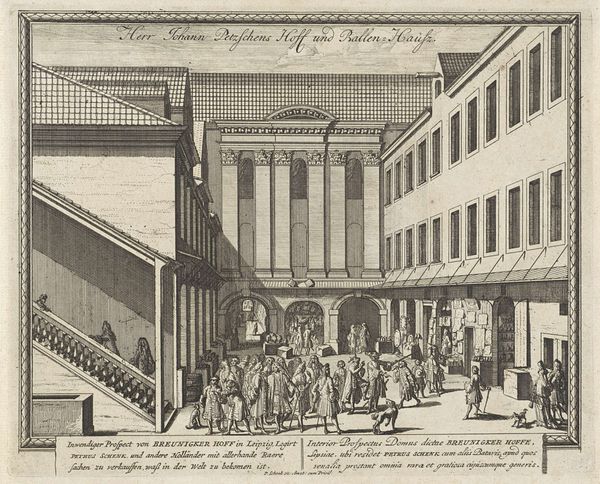
Interieur van de Portugese Synagoge aan de Houtgracht te Amsterdam 1664
0:00
0:00
print, engraving, architecture
#
dutch-golden-age
# print
#
perspective
#
geometric
#
line
#
cityscape
#
genre-painting
#
engraving
#
architecture
Dimensions: height 113 mm, width 140 mm
Copyright: Rijks Museum: Open Domain
Jan Veenhuysen’s engraving depicts the interior of the Portuguese Synagogue in Amsterdam, offering a window into 17th-century Jewish life in the city. During this period, Amsterdam was known as a haven for religious tolerance, attracting Sephardic Jews who had been expelled from Spain and Portugal. Veenhuysen's work highlights both the grandeur and the subtleties of identity within this space. The architecture mirrors the desire to establish a sense of belonging and cultural pride, while the depiction of figures, presumably worshippers, offers a glimpse into the community's everyday existence. The presence of both men and women, albeit in separate sections, speaks to the gendered dynamics within the synagogue, a reflection of broader social norms. Through the detailed rendering of light and space, the engraving invites us to consider the intersection of faith, identity, and social structure during a pivotal moment in Jewish history. It prompts questions about how communities negotiate their identities in the face of historical upheaval and displacement.
Comments
No comments
Be the first to comment and join the conversation on the ultimate creative platform.
